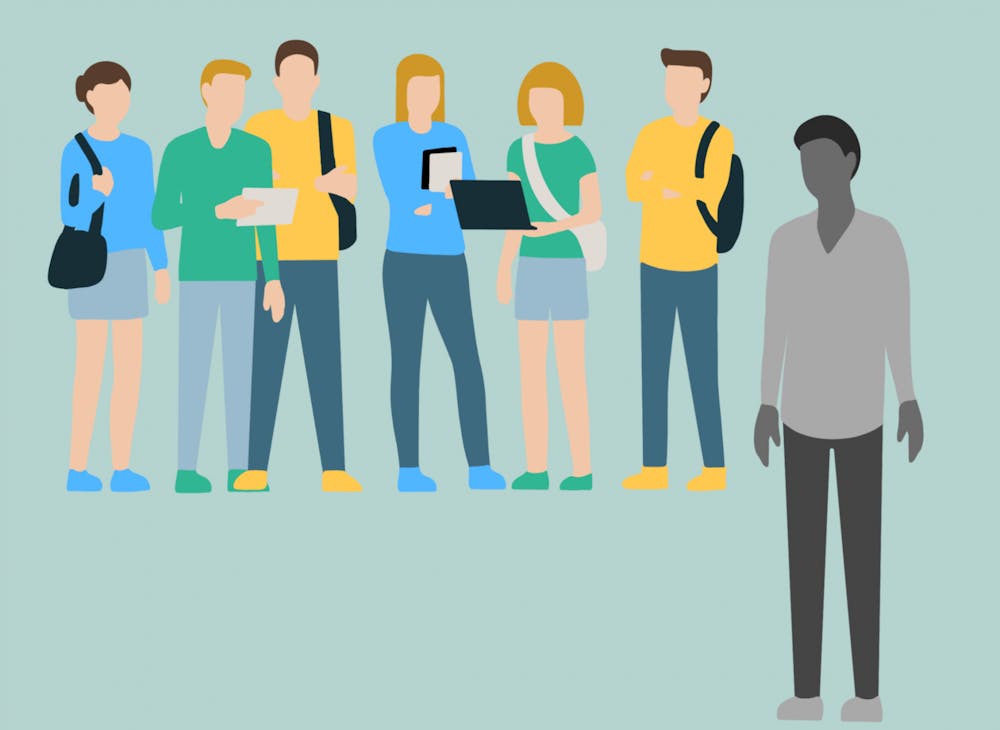On the third day of Black History Month this year, the Free Food and Merch GroupMe — made of over 3,000 University students — erupted in a discourse about racial bias. The conversation began after a petition to reform the Honor Committee’s single-sanction policy was sent to the chat accompanied by the claim that this policy targets Black and international students disproportionately. It is important to note that while Black students are also over-represented in Honor reports, it is Asian students who are targeted more often along with international students. Some students felt comfortable rejecting the proof provided that non-white students are disproportionately targeted in Honor reports. An argument quickly ensued, and many students in the chat felt uncomfortable with the conversation taking place, attempting to remove people from the chat and asking that the conversation be taken elsewhere. The discourse went on for well over six hours before many students gave up trying to defend themselves and their perspectives. Watching the group of primarily Black students be told repeatedly that the conversation should not have taken place was a somber reminder of the adversity we face at the University.
Being Black at U.Va. means having to pick and choose our battles. I have seen or heard of an instance of racial ignorance at this school at least once a week in my three years being here — before, during and after the period of being off Grounds for online classes. What happened in the Free Food and Merch group chat is not a singular occurrence. After witnessing many racist incidents at the University, such as professors cracking racist jokes, people shouting racial slurs during Zoom meetings and multiple instances of defacement of pro-Black messages on Beta Bridge, I am convinced that every Black student has had an unsavory experience at the University. Having to defend and explain ourselves on what should be the simplest topics to grasp — such as the existence of racial prejudice on Grounds — is never surprising. Disappointed but not surprised is our standard disposition.
Being Black at U.Va. means feeling the pressure to dim down our Blackness. For the comfortability of everyone else around me, I often codeswitch on natural instinct. Codeswitching — when a person changes how they speak based on who they are around — is a major problem for students of color at the University. Most, if not all of us, know how to do it and may often flex between the ways we communicate without even realizing. There is constant pressure to perform when you are one of the only — if not the only — Black person in the room. I had subconsciously kept myself from doing or saying anything too Black in order to preserve the comfortability of white students around me. Beyond that, I had been trying to make sure they did not think anything unsavory of me and assume it was the standard for all Black students at the school.
Being Black at U.Va. means knowing there will be people willing to argue with us about our basic human rights and opinions. Very often, the comments on my columns are filled with ignorant people who probably only read my inflammatory titles before feeling the need to say something because I’ve stirred the pot. I don’t care. White people frequently get riled up over people of color having the gall to defend their experiences and identify the shortcomings of white people. In the case of the Free Food and Merch chat, students were upset about where that defense was happening. But for many students, this brought up an important question — if the conversation didn’t happen in that chat, then where would it happen? Too often, these conversations are held in places where white people have control.
For me, being Black at U.Va. has meant reflecting on how I’ve presented myself as the ideal Black person in an effort to live up to white standards through most of my life. The cost of this was greater than I realized. Leaving a major part of myself at home for years caused me not to appreciate what I bring to the table as a Black woman. The racist view of the ideal Black person is not who I am. I’m just Black. I — and all other Black students at the University — reserve the right to be comfortable with ourselves and racial identity in all settings, whether they are white spaces or not. I have undone the social conditioning of being the minority in majority-white academic, professional and religious settings. I hope this Black History Month, all Black students at the University can feel the freedom of being their full selves. And I hope white students can deal with being uncomfortable.
Aliyah D. White is an Opinion Columnist for The Cavalier Daily. She can be reached at opinion@cavalierdaily.com.
The opinions expressed in this column are not necessarily those of The Cavalier Daily. Columns represent the views of the authors alone.







